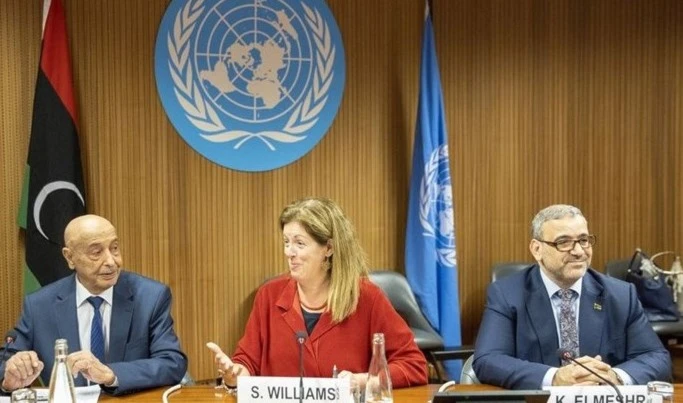Libya postpones release of presidential election candidate list
The High National Election Commission announces that it will not publish the list of presidential candidates, until some legal issues are settled, despite the approaching date of the elections scheduled for this month, 24th.
-

There are less than two weeks until the date of the Libyan presidential elections
On Saturday, Libya's electoral commission postponed the release of the final candidate list for the presidential election, which is set to take place in less than two weeks.
The electoral commission has not set a new date for the release of the final candidate list, which is supposed to signal the official start of the campaign.
The commission must publish the list of candidates two weeks after final court judgments and appeals relating to candidacies, according to the rules governing the election.
According to a statement on the election commission's website, "before proceeding to the publication of the definitive list of candidates and the start of their electoral campaign," the commission must still take a number of judicial and legal steps.
The commission went on to say that the voting process' success cannot be fully carried by the elections commission "since the results will cast a shadow over the present and future of the country."
The commission added that it is being cautious not to limit its duty to just enforcing the law, but that it is also ensuring that its responsibilities include "proper interpretation of the law."
Libyan High Council of State calls for postponing elections
On December 8, The High Council of State in Libya had called for postponing the December 24 presidential elections until February, amid growing differences over the rules and legal basis for voting aimed at ending the 10-year instability, that started following the NATO intervention in the country.
The statements of the High Council -- an advisory body established under the Libyan political agreement of 2015 that is not recognized by all political entities in the country -- came less than three weeks before the elections.
Debate rages on the extent of the powers of the High Council of State in the complex Libyan political arena, but the HC's statement raises the doubts surrounding the conduct of the elections.

 2 Min Read
2 Min Read









